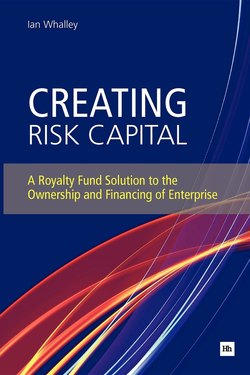Читать книгу Creating Risk Capital - Ian Whalley - Страница 38
На сайте Литреса книга снята с продажи.
Factors that determine the form of ownership
ОглавлениеHenry Hansmann found that a number of different factors influence the choice of ownership form. One consideration is capital, and another is risk, both of which might be seen as favouring ownership by investors. Another factor is regulation, which by protecting the public against abuse, has helped investor-owned enterprise to compete with and even ultimately displace many co-operative, mutual and non-profit firms, for example in the banking and life insurance industries. [10] Culture and ideology may also play a part, and some individuals who may dislike adversarial relationships in particular situations may find benefit in dealing with a firm they own, such as a consumer co-operative, or with a non-profit firm.
None of these factors, however, appears decisive. Nor does the factor which has received so much attention in the literature on organisations – namely the monitoring of management. It is efficiency which seems to be the critical factor in determining ownership form.
The key question is the degree of common interest among a particular constituency of the firm, such as investors, employees or customers. If the common interest is sufficient, the members of that constituency can become efficient owners of the firm. Thus investors of capital, for example, typically have a strong common interest in the firm and are therefore often “natural owners by default”. [11] If, however, there are significant conflicting interests within a constituency, its members are unlikely to be efficient owners. Thus, for example, conflicting interests among employees are not uncommon, and if they become owners, such conflicts can lead to costly disagreements.
On Hansmann’s analysis, a wide range of ownership forms seems healthy in a modern economy. He concluded that no one form of ownership is inherently superior to another, but that in any particular type of enterprise, at any one time and place, a particular form of ownership may work better and more economically than others. Thus the reason for the widespread adoption of investor ownership in large-scale enterprise is that it is the ownership form which most often, but by no means always, proves most efficient in Western economies in the late twentieth and early twenty-first centuries.
